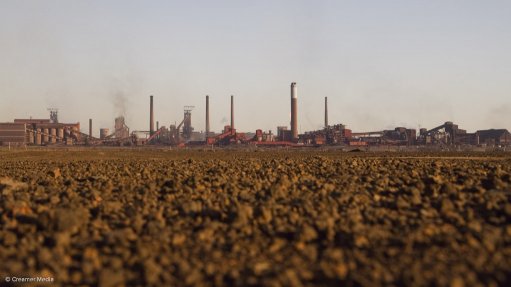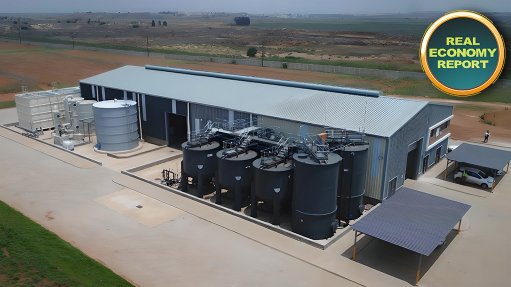Unquitting Prez Ruto?
When asked by a journalist to reflect on his ten years as Botswana’s President – from April 2008 to April 2018 – Ian Khama was succinct and unequivocal: “I didn’t enjoy politics. Everybody’s problems were put on you. It was a burden that you felt. And no matter who I met, where I met them, even if it was with family and you thought you were just having a family gathering, people would raise some issue that was going on.”
This is certainly not my idea of fun and makes me wonder why we have had many strongmen across our continent who have been in power for the longest time, having abolished the two-term limits that have become synonymous with many of the world’s credible democracies. There is Paul Biya in Cameroon, Yoweri Museveni in Uganda, Teodoro Obiang in Equatorial Guinea, Denis Sassou Nguesso in the Republic of Congo, Isaisas Afwerki in Eritrea, Paul Kagame in Rwanda.
These fellows – and others who had to be forced out – belong to the older generation. But I am afraid the tendency to stay put once one gets a foot in the door of the Presidency seems to be manifesting in a relatively young person – and that is Kenya’s William Ruto, who ascended to the top job last year and is constitutionally permitted to contest for only one more five-year term when the current one expires in 2027.
Last month, a senator from his party, the United Democratic Alliance (UDA), called for the extension of the Presidential term from five to seven years. The argument he advanced is that Kenyans are usually in campaign mode for two years straddling an election, which leaves the President little time to deliver on his election manifesto. “We lose a whole year in campaigns [before an election] and another year is lost immediately after the election because of the litigation at the Supreme Court,” elucidated Senator Samson Cherargei.
If the senator’s proposal prevails, Ruto could govern for 19 years, as he could begin a new seven-year term in 2027 and serve a second one from 2034.
But the UDA has distanced itself from this proposal, with its secretary-general stating that the “party respects and upholds the senator’s personal views but, particularly on the referenced subject, those views do not reflect the perspective of the UDA party and of its party leader”.
This is not the first time that someone in Ruto’s inner circle has proposed that he be allowed to be President for longer than the constitutional maximum of ten years. In November last year, a Parliamentarian from the UDA proposed that Presidential term limits be removed altogether and that the upper age limit for candidates eyeing the top job be set at 75 years.
Ruto himself felt compelled to assure Kenyans that he was not contemplating any changes to the Constitution, saying: “Do not spend your time pushing for selfish and self-serving legislation like changing the Constitution to remove term limits. My focus is service to the people.”
But Kenyans were not convinced by Ruto’s repudiation, just as they took last month’s averment by the UDA secretary-general that his party was not pushing for a longer Presidential term with copious pinches of salt.
One commentator in Nairobi, the Kenyan capital, remarked last month that this was a testing of the waters before formally placing the issue on the public agenda. I buy this. A similar thing happened in Zambia, where Frederick Chiluba, who defeated founding President Kenneth Kaunda in elections in 1991, did his damndest to be allowed to run again when 2001 rolled around. He sought to have a ten-year cap in the Constitution that disqualified him lifted, doing so through proxies. I recall, at the time, attending the official opening of a mine on the Zambian Copperbelt owned by Metorex, the now defunct South African company. The local leadership of Chiluba’s Movement for Multiparty Democracy were in attendance, and much of what they said focused on why he deserved another five years. During his ten years in power, Chiluba had reversed his predecessor’s disasterous experimentation with nationalisation, which had resulted in the near collapse of the country’s mining sector. It was because of Chiluba’s reformist agenda that Metorex and other mining companies were flocking back to the Zambian Copperbelt. In the event, Chiluba’s plan came unstuck.
Comments
Press Office
Announcements
What's On
Subscribe to improve your user experience...
Option 1 (equivalent of R125 a month):
Receive a weekly copy of Creamer Media's Engineering News & Mining Weekly magazine
(print copy for those in South Africa and e-magazine for those outside of South Africa)
Receive daily email newsletters
Access to full search results
Access archive of magazine back copies
Access to Projects in Progress
Access to ONE Research Report of your choice in PDF format
Option 2 (equivalent of R375 a month):
All benefits from Option 1
PLUS
Access to Creamer Media's Research Channel Africa for ALL Research Reports, in PDF format, on various industrial and mining sectors
including Electricity; Water; Energy Transition; Hydrogen; Roads, Rail and Ports; Coal; Gold; Platinum; Battery Metals; etc.
Already a subscriber?
Forgotten your password?
Receive weekly copy of Creamer Media's Engineering News & Mining Weekly magazine (print copy for those in South Africa and e-magazine for those outside of South Africa)
➕
Recieve daily email newsletters
➕
Access to full search results
➕
Access archive of magazine back copies
➕
Access to Projects in Progress
➕
Access to ONE Research Report of your choice in PDF format
RESEARCH CHANNEL AFRICA
R4500 (equivalent of R375 a month)
SUBSCRIBEAll benefits from Option 1
➕
Access to Creamer Media's Research Channel Africa for ALL Research Reports on various industrial and mining sectors, in PDF format, including on:
Electricity
➕
Water
➕
Energy Transition
➕
Hydrogen
➕
Roads, Rail and Ports
➕
Coal
➕
Gold
➕
Platinum
➕
Battery Metals
➕
etc.
Receive all benefits from Option 1 or Option 2 delivered to numerous people at your company
➕
Multiple User names and Passwords for simultaneous log-ins
➕
Intranet integration access to all in your organisation


















